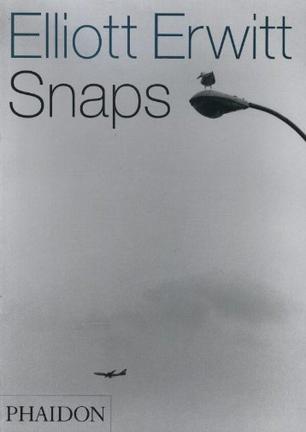欢迎来到相识电子书!
标签:Erwitt
-
Unseen
For those already familiar with the scope and ingenuity of this photographic craftsman, this is an essential addition to your Erwitt collection. If not, you can look forward to discovering his eclecticism and expertise. Probing the limits of black-and-white photography, Erwitt's lens captures subtleties ranging from the duskiest grays to the most luminous whites. This intriguing collection of previously unpublished photographs highlights the drama in everyday moments. Its subjects range from anonymous faces in the crowd to candid glimpses of icons like John F. Kennedy, Marilyn Monroe, and Truman Capote. -
Elliot Erwitt Snaps
Elliott Erwitt Snaps is a comprehensive survey of Erwitt's work containing more than 500 pictures, many never published before. From famous images like Khrushchev and Nixon arguing in Moscow in 1959 and Marilyn Monroe with the cast of The Misfits, to more personal subjects, Erwitt's distinctively witty style captures the famous and the ordinary, the strange and the mundane over a period of more than half a century. The book's nine chapters, entitled Look, Move, Play, Read, Rest, Touch, Tell, Point and Stand, act as a means of grouping and organizing - making broad connections while playing a game of pun and ambiguity in keeping with the visual games Erwitt plays with the camera. 'The hallmarks of an Erwitt classic: the ability to spot an absurd juxtaposition and to record it with childlike delight Ö This tome shows that he hasn't lost any of the visual wit that makes one relish his pictures, while, at the same time, recognizing the melancholy that infuses any realization of the arbitrariness of existence.' (Time Out) 'Rare among photographers, Erwitt can make you laugh out loud (just turn to pages 86-87), but his scope is Tolstoyan. This 550-page retrospective will absorb you for years.' (Independent) 'An essential career-spanning retrospective that reveals Erwitt's unassuming wit, brilliant framing and deep humanity.' (New York Post)
热门标签
下载排行榜
- 1 梦的解析:最佳译本
- 2 李鸿章全传
- 3 淡定的智慧
- 4 心理操控术
- 5 哈佛口才课
- 6 俗世奇人
- 7 日瓦戈医生
- 8 笑死你的逻辑学
- 9 历史老师没教过的历史
- 10 1分钟和陌生人成为朋友


